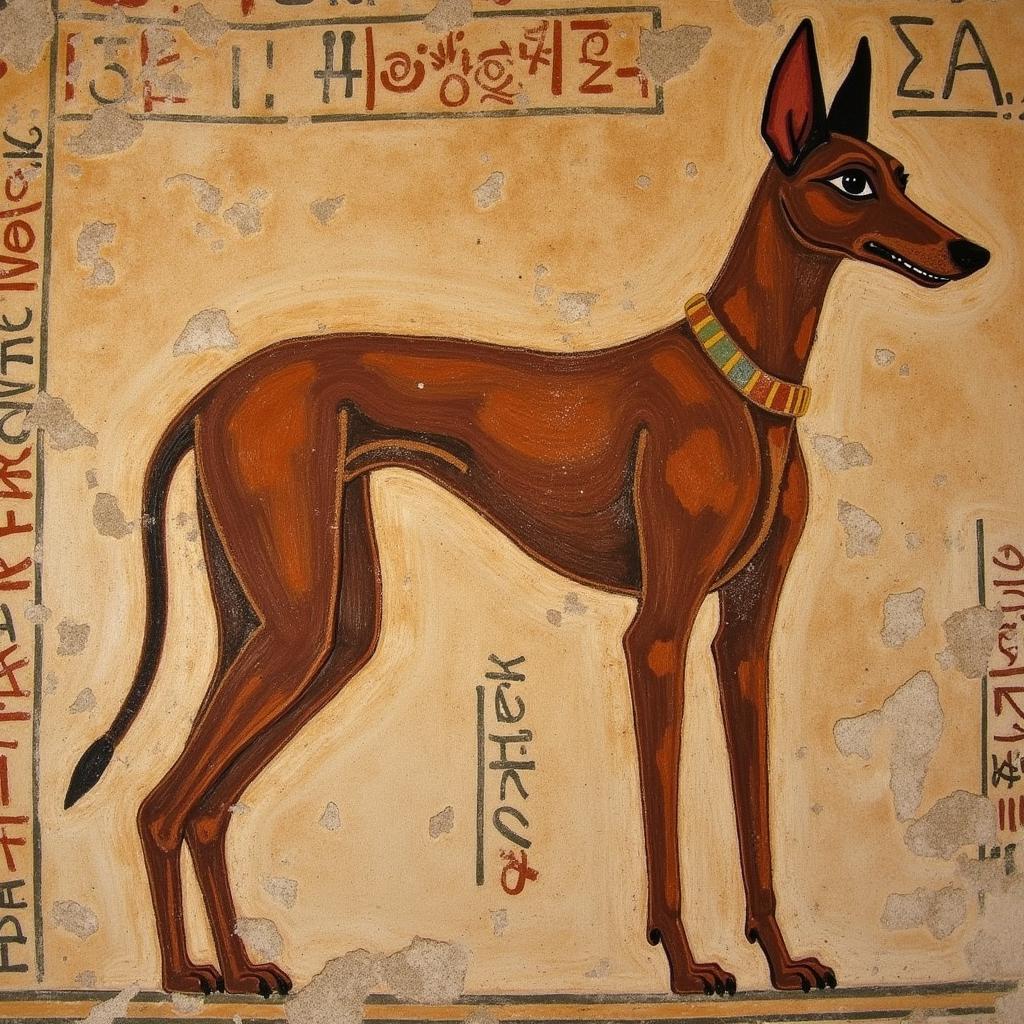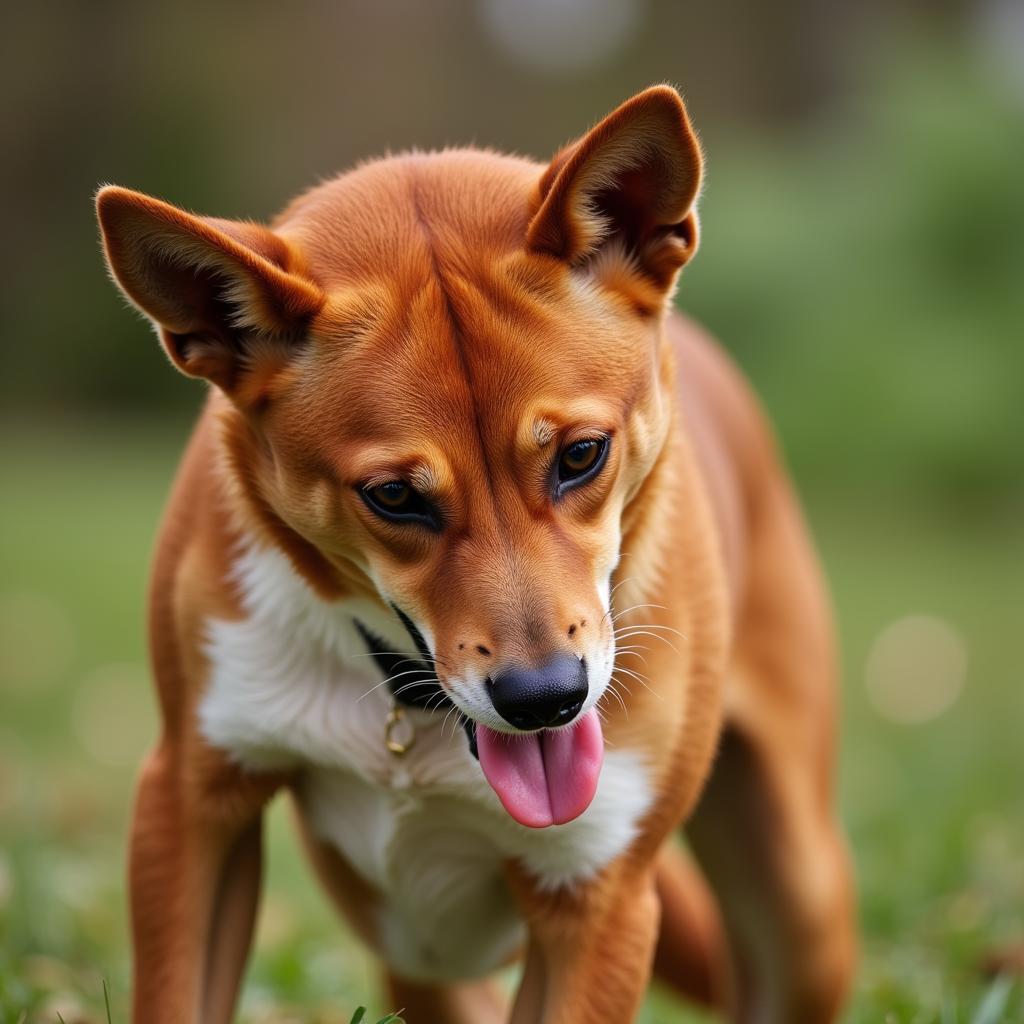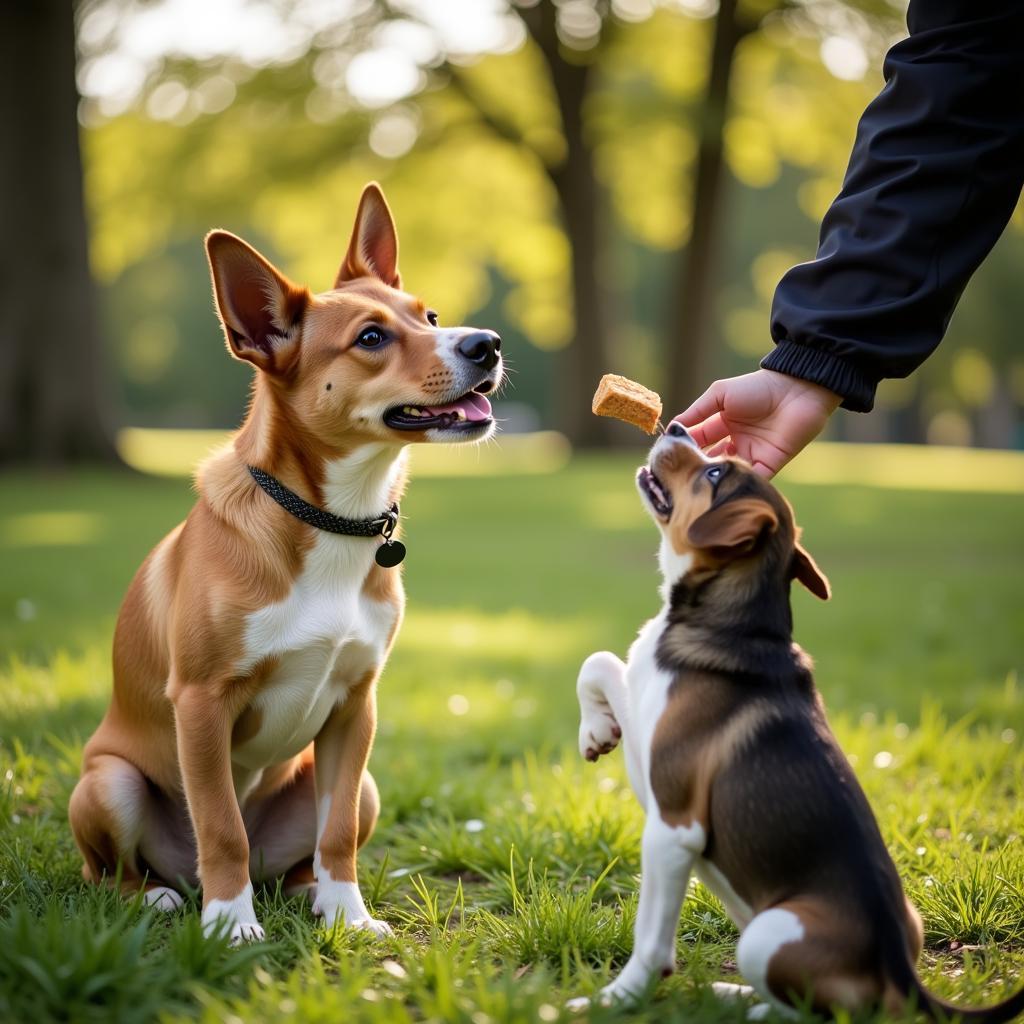The African Basenji: A Unique and Ancient Dog Breed
The African Basenji dog breed is a truly unique and ancient breed, known for its distinctive “yodel” instead of a bark and its independent, cat-like personality. Originating in Central Africa, the Basenji has captured the hearts of dog lovers worldwide with its intelligence, loyalty, and striking appearance.
A History Shrouded in the Heart of Africa
 Basenji dog in ancient Egypt
Basenji dog in ancient Egypt
The Basenji’s history can be traced back thousands of years to ancient Egypt. Evidence suggests that these dogs were prized companions to pharaohs, as depicted in artwork and even mummified alongside their owners. Later, the breed thrived in its native Central Africa, where tribes relied on their hunting skills and companionship.
Distinctive Traits of the “Barkless Dog”
A Yodel, Not a Bark
One of the most fascinating characteristics of the Basenji is its inability to bark. Instead, they communicate with a unique sound often described as a “yodel” or “baroo.” This unusual trait is due to the shape of their larynx, which differs from other dog breeds.
The Cat-Like Basenji
Basenjis are often compared to cats due to their independent nature and meticulous grooming habits. They are intelligent dogs that can be strong-willed, making them a good choice for experienced owners who can provide consistent training and socialization.
 Basenji grooming its coat
Basenji grooming its coat
Striking Appearance and Athleticism
The Basenji is a sight to behold, with its short, sleek coat, curled tail, and wrinkled forehead that gives it a perpetually curious expression. They are a small to medium-sized breed, known for their agility and speed, making them well-suited for activities like agility courses and lure coursing.
Welcoming a Basenji into Your Home
Exercise and Mental Stimulation
While not excessive barkers, Basenjis are energetic dogs that require a good amount of exercise and mental stimulation. Daily walks, playtime, and interactive toys are essential to keep them happy and out of trouble. For those interested in African Basenji puppies, it’s important to be prepared for their energetic nature right from the start.
Training and Socialization
Early training and socialization are crucial for Basenjis. Their independent nature can make them challenging to train, but with patience and positive reinforcement, they can learn basic commands and good manners.
 Basenji learning commands
Basenji learning commands
The Basenji: A Loyal and Loving Companion
Despite their independent streak, Basenjis are known for their loyalty and affection towards their families. They form strong bonds with their owners and thrive on companionship.
“The Basenji is a unique breed that requires a specific type of owner,” says Dr. Abena Otieno, a veterinarian specializing in African dog breeds. “They are intelligent and loving dogs but need someone who understands their independent nature and can provide consistent training.”
Is a Basenji Right for You?
The Basenji, with its rich history and unique traits, is a captivating breed. However, they are not the right fit for every household. Their intelligence, independence, and energy level require an owner who can provide the necessary training, socialization, and stimulation. For the right owner, the Basenji can be a loyal, loving, and truly rewarding companion.
FAQs about Basenji Dogs
1. Are Basenjis good family dogs?
Basenjis can be good family dogs for families with older children who understand how to interact with dogs respectfully. However, their independent nature and high energy levels might not make them suitable for families with young children.
2. Do Basenjis need a lot of exercise?
Yes, Basenjis are an active breed that needs a good amount of daily exercise. They enjoy walks, playtime, and activities that challenge them mentally and physically.
3. Why do Basenjis yodel instead of barking?
Basenjis have a uniquely shaped larynx, which prevents them from barking like other dog breeds. Instead, they make a distinctive “yodel” or “baroo” sound to communicate.
4. Are Basenjis difficult to train?
Basenjis can be more challenging to train than some other breeds due to their independent nature. They require patience, consistency, and positive reinforcement techniques.
5. Where can I find reputable African dogs for sale?
It’s essential to find a reputable breeder who prioritizes the health and well-being of their dogs. Research breeders thoroughly, ask for references, and ensure they conduct proper health screenings.
Explore More African Dog Breeds
Interested in learning about other fascinating African dog breeds pics? Discover the diversity and rich history of canine companions from the African continent. If you’re considering an African guard dog or want to know more about the fascinating world of the African American Dog, there’s a wealth of information to explore.
Contact Us
Need assistance or have questions about African dog breeds? Contact us at:
Phone Number: +255768904061
Email: kaka.mag@gmail.com
Address: Mbarali DC Mawindi, Kangaga, Tanzania
Our dedicated customer support team is available 24/7 to assist you.
